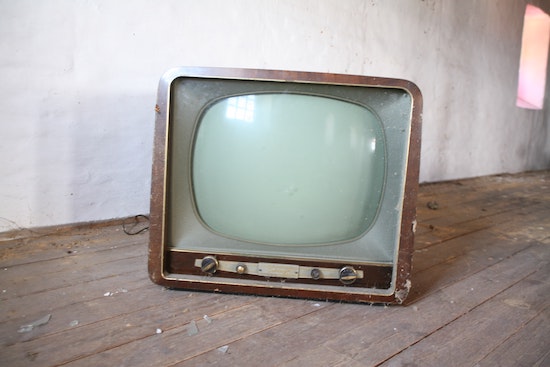Besides death metal, does any genre carry more weighty connotations than reality rap? Sure, most subcultures have traded on authenticity but, as the tag implies, proximity to its source material has been an especially crucial arbiter of rap realness. It also bears remarking that no other music has had its worldview condemned so much and for so long. Rock, punk, rave, and metal each elicited their fair share of moral panics, none so consistently as hip-hop however, which for nearly four decades has been the target of one moral crusade or another.
Obviously this has a great deal to do with race. For one thing, hip-hop tends to adopt an exceptionally recalcitrant mood, one that often expressly challenges white power. In turn, it generates a good deal of anxiety over its influence upon its listeners. It’s no stretch to say that it is the music’s perceived effects upon reality that have made it seem so threatening.
Rap’s detractors have often set upon the music’s relation to reality as a central plank of attack too. This is most evident in the sorts of racist pathologising that reduces rap’s depictions of sex and violence to a mirror of African American social dysfunction. It’s also discernible in an idea held by some critics that the cast of hustlers and bandits that populate the hip-hop charts merely reflect the sort of crushing entrepreneurial activity that has become a condition of survival in America today. There’s also a singular burden placed on Black arts to contribute to social uplift and this has long been the source of hand-wringing over hip-hop’s moral compass. More convincing assessments reject these sorts of symptomatic readings, of course, and instead situate hip-hop in older African American vernacular traditions which, in the case of reality rap, rest particularly with nineteenth-century ‘badman’ tales of outlaw exploits.
In his new book, Who Got The Camera? A History of Rap and Reality, author Eric Harvey offers still another perspective: that rap’s vision of the world emerges from its dialogue with American television. On this reading, hip-hop is understood as a sort of counter-reality opposed to mass media presentations of black life.
Ice-T is an important early figure in Harvey’s story. Self-styled as a tabloid reporter at the front lines of L.A.’s gang world, his blend of obscene and violent street tales not only made him the first major reality rapper, it also reverberated the ever more sensationalist world of mid-1980s TV news. Whether we think Ice-T’s pretences to reportage held up, they were real enough for him to be invited as an authority on gang violence to daytime talk shows, California schools, and, at one point, even Congress.

Eric Harvey, photo by: Anne Powell Denton
If Ice-T’s rise paralleled a flashier tabloid journalism, Harvey situates NWA amidst the birth of reality TV in the late 1980s, occasioned by the two Fox programmes that pioneered the format: America’s Most Wanted, an armchair vigilante theatre which invited viewers to phone in tips after watching crime dramatisations; and Cops, a pseudo-documentary that affected behind-the-scenes access to police. In this context, NWA’s 1988 album Straight Outta Compton is significant for the way it upended the heroic fantasies of law enforcement peddled on Fox, a fact underlined by the video for ‘Straight Outta Compton’ where police are cast as inept buffoons outsmarted by the group.
That NWA at times endorsed a view of their music as counter-reality crime reporting is underscored by a moment in the early track ‘Boyz N Da Hood’ when Eazy-E recounts reading about a murder he’s committed in the L.A. Times. It’s also implied in the alibi NWA members tended to employ when challenged on the coarseness of their lyrics: they were merely reflecting the reality from which they emerged. Whether we accept such a claim, Harvey suggests theirs was a mode of presentation equal to the caricatures of crime TV, so that “tabloid rap” might be more fitting as an epithet for their brand.
By the mid-1990s American popular culture was fully in the throes of its reinvention along the lines of reality TV. Ratings for America’s Most Wanted and Cops might’ve dropped by then but the sorts of documentary soap operas pioneered by MTV’s Real World along with increasingly intimate and outrageous talk shows with few pretences to news at all, had become ubiquitous. Rap music had sustained similar transformations. Both 2Pac and Snoop Dogg’s widely publicised legal troubles, in making the experience of criminality more proximate to the artist, reflected a further shift of what counts as real in rap. As the music’s insistence on its authenticity, on its “real world” origins, came further to the fore, Harvey argues, so did its opposition to police power recede. Indeed, the soap operatic East coast/West coast rivalry more or less consumed rap in the mid-1990s.
There are other decisive moments in this absorbing and wide-ranging account of the changing parameters of what rap counts as real. It deliberates over 2 Live Crew’s obscenity trial, 50 Cent’s shooting, revelations of Rick Ross’s past as a prison officer, and Kendrick Lamar’s more vulnerable portrayal of street life. A key point in its narrative, something of the book’s hinge, occurs with the recording of the Los Angeles police assault on Rodney King and the uprising that followed his attackers’ acquittal. Not only does the King tape vindicate early reality rap as a mode of reportage more real than TV, the recording also serves as ballast for Harvey’s central idea, borrowed from French philosopher Jean Baudrillard, that reality rap be understood as a “hyper-reality”. By this phrase Baudrillard had in mind a world where spectacle and reality become indivisible, where media presentations of the Gulf War or of King’s beating, for instance, overwhelm any actual event. It’s an idea that serves Harvey’s understanding of the King tape, rap music, and reality TV, insofar as all amount to instances where reality and its representation become more or less indiscernible.
There’s a significant distinction between rap and reality TV though. As a mode of knowledge, a way of relating to the world, music is unique in the way it centres the carnal. The meaning of ‘Fuck tha Police’ is inseparable from the bluster of breath with which Ice Cube exhales those first words just as the Funky Drummer break comes barrelling in. It’s an experience of reality, in other words, that is felt as much as it’s intuited. So while reality TV calls on us to stand back and sneer, to judge, and to withdraw, rap’s haptic qualities draw us in. Ultimately, these differences of form underlie their differing realities.
Who Got the Camera? A History of Rap and Reality by Eric Harvey is published by University of Texas Press


